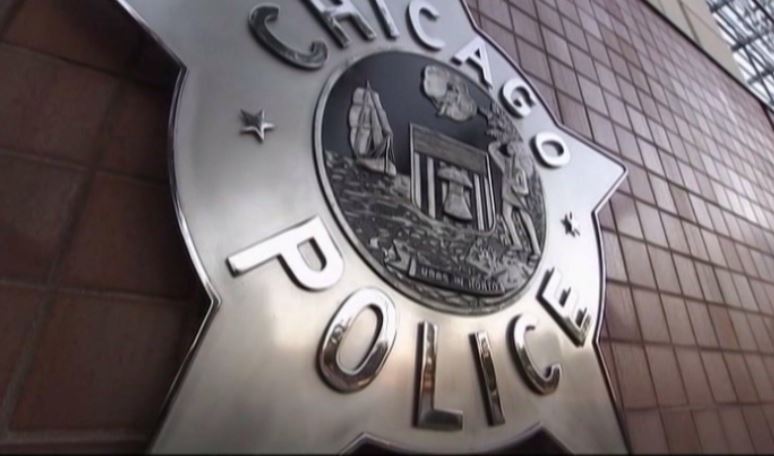Chicago Mayor Lori Lightfoot's surprise announcement on Dec. 2 that Police Supt. Eddie Johnson had been fired capped 26 hours of back-and-forth on how best to present the public argument and break the news to members of the Chicago Police Department, among others.
Emails from Lightfoot's office, obtained via public records request, depict a marathon of communication over the course of the day leading up to Lightfoot’s announcement of Johnson's termination and well into the day after.
NBC 5’s Freedom of Information Act request asked for emails between Lightfoot and her chief of staff Maurice Classen relating to the incident in the early morning of Oct. 17 when Johnson was discovered passed out in his car following a 911 call. It was later revealed that Johnson had spent much of the night drinking, with Lightfoot alleging he "intentionally misled" her and the public about what really transpired.
In making the seemingly sudden decision to oust Johnson, Lightfoot turned to someone who helped her get elected to draft remarks and a statement on Johnson's firing. That person was Joanna Klonsky, a communications consultant who worked on Lightfoot's mayoral campaign.
The first email provided was sent at 8:07 a.m. on Sunday, Dec. 1 - the day before Lightfoot announced Johnson's firing. Klonsky emailed Classen with the subject line “Draft release attached," with the attached statement spelled out in capital letters: “CONFIDENTAL DRAFT_MLL Release EJ Termination.docx."
Six minutes later, Klonsky emailed again, subject line: "DRAFT press conf remarks."
Over the course of that Sunday, emails traveled between Klonsky, Classen, Lightfoot’s Director of Communications Michael Crowley and Assistant Press Secretary Patrick Mullane as they worked on framing the narrative of Johnson’s exit.
At 4:49 p.m. that afternoon, Lightfoot followed up with her own edits to not only what she would say to the press and the public but also her remarks to police, according to the emails.
Careful attention was paid to what the mayor’s office would tell aldermen, members of the Lightfoot cabinet, local leaders and police, both rank and file as well as command staff. Much of the text is redacted, as it was in a memorandum for Lightfoot that was prepared for her meeting with CPD's command staff at department headquarters.
By 11:18 p.m., Lightfoot's team indicated work was done for the day. Mullane sent Classen and Crowley the "Final Draft MLL Press Con Remarks" with the initials mc, mll and cm added on.
At 6:25 a.m. on Monday, Classen distributed what the subject line called “Press Conference final version.” But it wasn’t final, as the mayor apparently wished to make her own last-minute edits.
At 8:02 a.m., Classen wrote: “FYI-MLL making some new edits to remarks this morning. We’ll work off a new version. Standby.”
By 9:49 a.m. - less than an hour before her scheduled 10:30 a.m. news conference announcing Johnson's firing - the final edits were complete.
Johnson was summoned to City Hall that Monday morning for a meeting with Lightfoot, where she said she told him he was being fired. At 11:00 a.m., Classen sent Johnson an electronic copy of his separation letter, which Classen wrote that Lightfoot had handed Johnson earlier that morning.
The now ex-superintendent released his only public comment the following day.
"One thing I want everyone to know is this: I did not intentionally mislead or deceive the Mayor or the people of Chicago," Johnson wrote in a statement distributed by his attorney.
Sarah Pang, who served on Lightfoot's transition team, emailed Classen with her version of what was transpiring – forwarding Johnson's statement with her own comment, writing, "They are working to get media to focus on the mea culpa vs a push back, as a mea culpa was important to him."
The emails indicate that members of Lightfoot's team were watching both public and press reaction to the firing, with Crowley flagging tweets from reporters Sam Charles of the Chicago Sun-Times and Greg Pratt of the Chicago Tribune.
On Tuesday, Dec. 3, the director of digital strategy in Lightfoot's office provided data analysis of the online reaction to Johnson's firing.
"Hi all - pulled together some metrics and data on what folks are saying about Johnson online," Han Nguyen wrote in an email to Lightfoot's communications team, in which three lines of his "topline insights" were redacted. But the report distributed shows more than 6,500 mentions of Johnson online, with an assessment of sentiment (positive, negative or neutral), and highlights of some of the day's top stories online and posts on social media.
The firing of Johnson was the second major public crisis for the new mayor, after the weeks-long Chicago teachers' strike in October. Johnson’s firing came after Lightfoot reviewed a report by the city’s inspector general detailing the superintendent's actions on the night of Oct. 16. When she first viewed that report is not clear, but the emails show both the swiftness and the urgency of the reaction on the fifth floor of City Hall.



